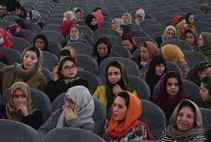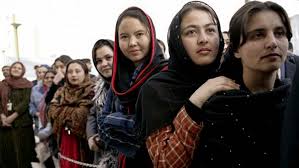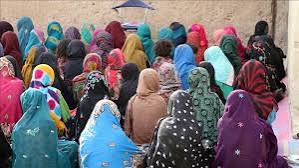Women’s rights in Afghanistan

Women’s rights in Afghanistan is a complex and sensitive issue that is influenced by cultural, social, political and legal factors. In different eras, the status of women’s rights has changed a lot, and these changes have varied according to different governments and social developments. In the following, some aspects of women’s rights in Afghanistan are mentioned:
Taliban rule period (1996-2001 and from 2021 until now)
-
Education: During the periods of Taliban rule, girls and women were severely restricted in the field of education. Currently, many schools and universities are closed for girls or severe restrictions have been imposed on them.
-
Work and employment: Women are deprived of many job opportunities under the Taliban government. The presence of women in government offices and many private sectors is prohibited or restricted.
-
Covering and personal freedoms: Women are required to wear a burqa or veil, and their personal freedoms, such as freedom of movement and presence in public places, are severely restricted.
-
Legal and judicial rights: Women in the judicial system under Taliban rule often do not have access to equal rights and many laws are interpreted to their detriment.
Government period of the Islamic Republic of Afghanistan (2001-2021)
-
Education: During this period, women and girls were able to access education and a large number of them entered schools and universities.
-
Work and employment: During this period, women were able to work in various sectors, including government offices, international organizations, media and the private sector.
-
Legal and judicial rights: During this period, many efforts were made to strengthen women’s rights and protective laws were passed for women, although the implementation of these laws faced challenges.
-
Social and political activities: Women were able to participate in social and political activities and be present in the parliament and other government institutions.
Current challenges and problems
-
Violence and discrimination: Women in Afghanistan face domestic violence, gender discrimination and human rights violations.
-
Cultural and social restrictions: Traditional and cultural beliefs still play a big role in limiting women’s rights, and many women cannot benefit from their rights because of these beliefs.
-
Security and Protection: Women are exposed to more risks due to the unsafe and unstable conditions of the country, and their access to legal and social protection is limited.

international and domestic efforts
International and domestic organizations have made many efforts to improve the situation of women’s rights in Afghanistan. These efforts include training and empowering women, supporting victims of violence, and promoting women’s rights in society.
The future of women’s rights in Afghanistan
The future of women’s rights in Afghanistan is highly dependent on political and social developments in the country. Positive changes can be realized through awareness raising, legal protections, and international and domestic community efforts to strengthen women’s rights.
Women’s rights in Afghanistan are still a vital and important issue that needs continuous attention and support so that women can achieve equal rights and opportunities.
